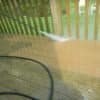
Sometimes you open a faucet or the shower in your home, and the smell of rotten eggs hits you. You are not alone. Millions of people have this problem. Like you, they are wondering what’s causing it and how to fix it. We’re here to help. Our hot water smells like rotten eggs fix it guide has all the answers.
But before you can apply a fix, you must know the cause of this problem.
Table of Contents
My Tap Water Smells Like Rotten Eggs
In general, tap water smells like rotten eggs for a few reasons. Your water may smell like sulfur for one reason or another. If you are unlucky, you may have more than one or all the causes for the rotten egg smell in your water.
Let’s explore those reasons to find out where you are and what you need to do about it.
Reasons Why Tap Water Smells Like Rotten Eggs
There are a few reasons water stinks coming out of the faucet. All the reasons are because of one naturally occurring ion. But, we’ll talk more about this as we continue.
A rotten egg odor is usually caused by the build-up of hydrogen bacteria or hydrogen sulfide. And it can come from many different sources. That’s why the first step to fixing this problem is to isolate the odor. You have to try to find out the location of the smell.
Is It The Drain?
I want to start by saying that sometimes the rotten egg smell is not your water. It could be the drain.
Food and other waste materials (including soap) go down the drain. More often than not, they get stuck there and can clog the pipes. Clogging causes more waste to get stuck. It also causes water to drain too slowly. Over time, bacteria begin to build up. These bacteria create a gas called hydrogen sulfide.
The flow of the water forces the gas up the drain back to the sink whenever you turn on the tap.
Sometimes, that’s what has the rotten egg smell, not your water.
Here’s what you need to do to find out if it is your drain which has that sulfurous odor.
- Fill a glass with water.
- But ensure that no water flows down the drain.
- Set the glass down.
- Take a step back.
- Take a deep breath.
Do you smell anything foul in the air? If you do not smell the rotten egg smell, then your drain could be the problem. To be sure, give the glass of water a sniff. What do you smell?
If the water in your glass has a clean smell, then your water supply is not the problem.
To confirm if this is the case, turn on the tap and let the water flow into the drain. Do you smell the rotten egg smell now? If you do, then you know the source of the problem is your drain.
Run this check in every room in your house to learn if the trouble is only with your drain and not your water supply.
How To Fix It?
The solution to this drainage issue is simple. The drain needs to be unclogged. You can do this yourself using a drain cleaner. If the job is more complex, you may need to call in a plumber.
There are a few other culprits that could be the cause if the drain is not the problem.
Why Does My Hot Water Smell Like Rotten Eggs?
If your hot water smells like sulfur, there is a high chance your water heater is the guilty party. But this is the case if only your hot water has that awful smell.
If both your hot and cold water smells like rotten eggs, the problem is something different. But we will talk more about this a bit later. Let’s take a deeper look into the sulfur smell in hot water.
Water Heater
Your water supply has a natural ion called sulfate. Two things can turn sulfate into a smelly gas.
- The bacteria count in your water supply.
- An anode rod made of magnesium in your water heater.
Sulfur-Reducing Bacteria (SRB)
The bacteria feed on the sulfates in your water. When that happens, they release a gas called hydrogen sulfide which mixes with the water.
The Anode Rod corrosion
Your water heater comes with an anode rod. Its job is to protect the lining inside the tank of the water heater. It does that by attracting corrosive minerals towards itself. So, the anode rod corrodes instead.
It’s no wonder why the anode rod has the name the sacrificial rod.
When the metals in these rods corrode, they react with the sulfates in your water. They then convert the sulfate to foul-smelling hydrogen sulfide. Hydrogen sulfide smells like sulfur. Sulfur smells like rotten eggs. That’s the reason the water heater anode smells like rotten eggs.
The Fix
The only way to rid your hot water of that smell is by:
-
- flushing the tank of your water heater
You can do this using hydrogen peroxide. All you have to do is empty the tank. Add 1-2 quarts of hydrogen peroxide (3%). Fill the tank back up and shut it for a few hours. When you’re ready, drain the tank and rinse it out.
-
- Disinfect your water heater system
you can use chlorine bleach and water to clean out the tank.
-
- Putting in a new anode rod
Three types of metals are used to make anode rods.
Zinc
Magnesium
Aluminum
Zinc has anti-fungal properties. It may reduce bacteria growth. So, if your water often ends up smelling like rotten eggs, this is the better option.
Why Does My Cold Water Smell Like Rotten Eggs?
If your cold water also smells like rotten eggs, the problem is your water supply.
To know if your cold water smells like rotten eggs, perform the test I described earlier. The culprit responsible for this problem is the same SRB. But it means that problem is the source of your water supply.
In this case, you need a water treatment system. The best solution is a water purification device. But water filters or purifiers have to be cleaned. Do that as often as the manufacturer recommends.
Frequently Asked Questions
Why Does Well Water Smell So Bad?
Sometimes, well water stinks. Why is that?
Well water is underground water. And underground water has a high concentration of SRB. SRB is what makes the gas that makes your water smell like eggs. Now you know why well water smells like eggs.
My Water Softener Smells Like Sulfur. Why Is That?
Your water softener smells bad for the same reason your water and drain smells bad. Over time, the bacteria in your water supply grows. The bacteria.
The salt found in water softener tanks attracts this sort of bacteria. The rotten egg odor is caused by the discharge of hydrogen sulfide gas.
Can A Water Softener Fix My Hydrogen Sulfide Problems?
A water softener removes the minerals that cause water hardness. But, it is not a water filter or a water purifier. The salt in your water softener pulls hydrogen sulfide to itself. So, you water softener cannot get rid of the sulfur smell in your water.
If anything, it will only make the smell worse.
Water Smells Like Eggs Dangerous Or Not?
I’m not sure anyone wants to drink water that smells like rotten eggs. Whether it is harmful to drink is up for debate. There are mixed reviews on this question.
Some people say that hydrogen sulfide is harmful. Others report that it is not. To get the truth about this matter, we must take a look at the facts.
So, what are the facts about hydrogen sulfide?
Even small quantities of hydrogen sulfide in water can emit a powerful sulfur smell. In those small doses, hydrogen sulfide does no harm. Most of the time, the smell is due to the buildup of SRB or corrosion in pipes. It does not mean that there are large quantities of hydrogen sulfide in your water.
Most homes in the US have a low concentration of hydrogen sulfide in their water. But the EPA and your water supplier regulate those amounts. Whatever makes it into your water is safe to consume.
Whether you drink it is up to you.
But hydrogen sulfide gas in large quantities is toxic. It can cause respiratory problems. It can also irritate the skin and mucous membranes.
To find out how much of this natural ion is in your water, contact your water provider. You can also do an at-home test using a sulfur stick to get the answer.
If you have high levels of sulfur in your water, you may need help from a professional to treat your water. Send a sample to a laboratory for testing. They won’t test for sulfur. They will test for other elements in your water. That way, the water treatment company will know how best to do the job.
Important Note
Only a well proffessional should go into well pits or any other closed spaces where there is hydrogen sulfide.
What you should look out for is how hydrogen sulfur affects your plumbing and fixtures.
Why Do My Pipes Smell Like Rotten Eggs?
The answer to all your questions about the rotten egg smell in your pipes, drain, and water is the same. It is caused by the growth of bacteria which releases the gas, hydrogen sulfide. As the name suggests, this gas is sulfuric and sulphur smells like rotten eggs.
Conclusion
Both hot and cold water smell like rotten eggs sometimes. The culprit responsible for this foul odor is ion sulfate in your water supply.
Ion sulfate becomes a smelly gas hydrogen sulfide during several different processes. To get rid of this problem, follow the steps we described in this article.





